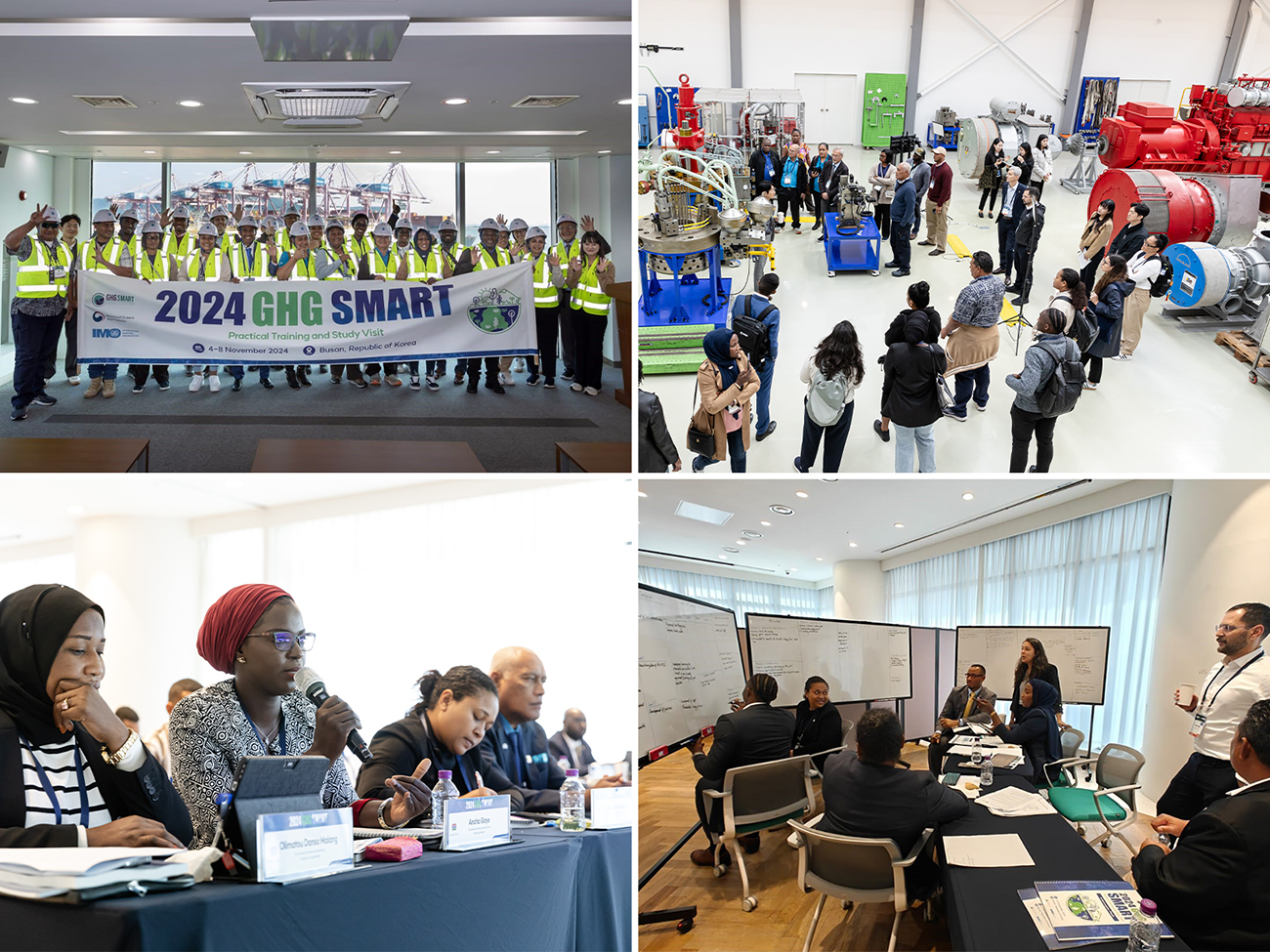Maritime professionals from small island development states (SIDS) and least developed countries (LDCs) have completed intensive sustainable maritime transport training in Busan, Republic of Korea (4-8 November).
Decarbonization, new fuels, national action plans (NAPs), port and ship efficiency, and climate finance were on the agenda for 18 participants* from 13 SIDS and LDCs from the Africa, Asia, Caribbean and Pacific regions taking part in the third annual GHG SMART practical training.
The event, organized by IMO and the Korean Maritime Safety Transportation Authority (KOMSA), brought together experts from IMO, the World Maritime University (WMU), the Green Climate Fund, the World Bank, KOMSA and the Maritime Administration Department of Guyana who presented on relevant regulatory, policy, technological and financial aspects of maritime decarbonization and included lectures, group activities and field visits to various maritime institutions and industrial sites.
The two top performing participants of the 2024 GHG-SMART cohort will be awarded full scholarships at WMU for a Master in Energy Management.
Ms. Kesaia Masirewa, a Transport Planning Analyst at the Ministry of Public Works of Fiji, said: "The training emphasized the critical role of climate finance, equipping me with knowledge on accessing financial resources and building partnerships to support Fiji's maritime decarbonization efforts. It strengthens Fiji's capacity to align with the IMO GHG strategy and enhances our ability to secure climate finance for low-carbon initiatives and contribute to maritime sustainability goals."
Mr. Jeronimo Tamele, Health, Safety and Environment Manager for the Maputo Port Development Company in Mozambique, said: "For me, the GHG SMART Training was an opportunity to build up a network between the participants and experts. I am delighted because I will no longer be working in a silo when it comes to debating energy transition. The knowledge acquired within the scope of GHG SMART Training will contribute to the ongoing process of preparing a strategic sustainability plan for the Port of Maputo."
"The training is extremely important and helpful in terms of developing Samoa's fit for purpose NAP to implement the IMO GHG Strategy and improve sustainable maritime developments in the future", said Ms Makerita Antonio-Iese, Principal Shipping Officer at the Ministry of Transport and Infrastructure of Samoa.
"The field trips provided a comprehensive view of how the maritime industry is actively preparing for the revised IMO Strategy on greenhouse gas emissions. Seeing first-hand the technologies and approaches being developed – from energy-efficient ship designs to advanced retrofitting techniques – gave me a deeper understanding of the industry's direction and the real-world applications of future compliance strategies," said Mr. Ian Noel, Senior Pilot & Inspector at the Grenada Maritime Administration.
The GHG-SMART project, funded by the Republic of Korea and implemented by IMO, supports least developed counties (LDCs) and small island developing States (SIDS) in maritime decarbonization through targeted capacity building. The project represents an innovative way of delivering IMO's capacity building training through continuous long-term annual cycles and post-training advanced learning opportunities at the World Maritime University to create sustainable capacities in the beneficiary countries for the implementation of the IMO GHG Strategy.
* Trainees came from the Bahamas, the Cook Islands, Fiji, the Gambia, Grenada, Mozambique, Nauru, Palau, Papua New Guinea, Saint Lucia, Samoa, Senegal and Timor Leste, bringing the total number trained participants to 61 trainees from 38 countries
